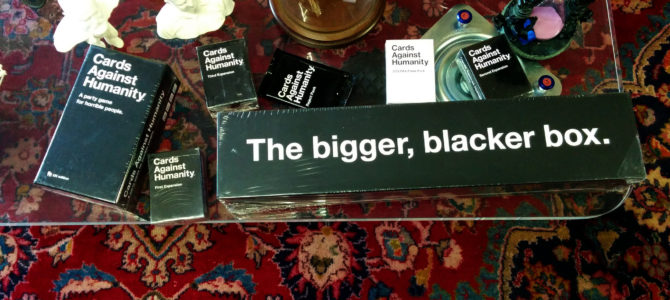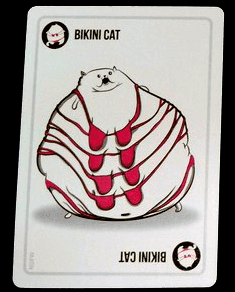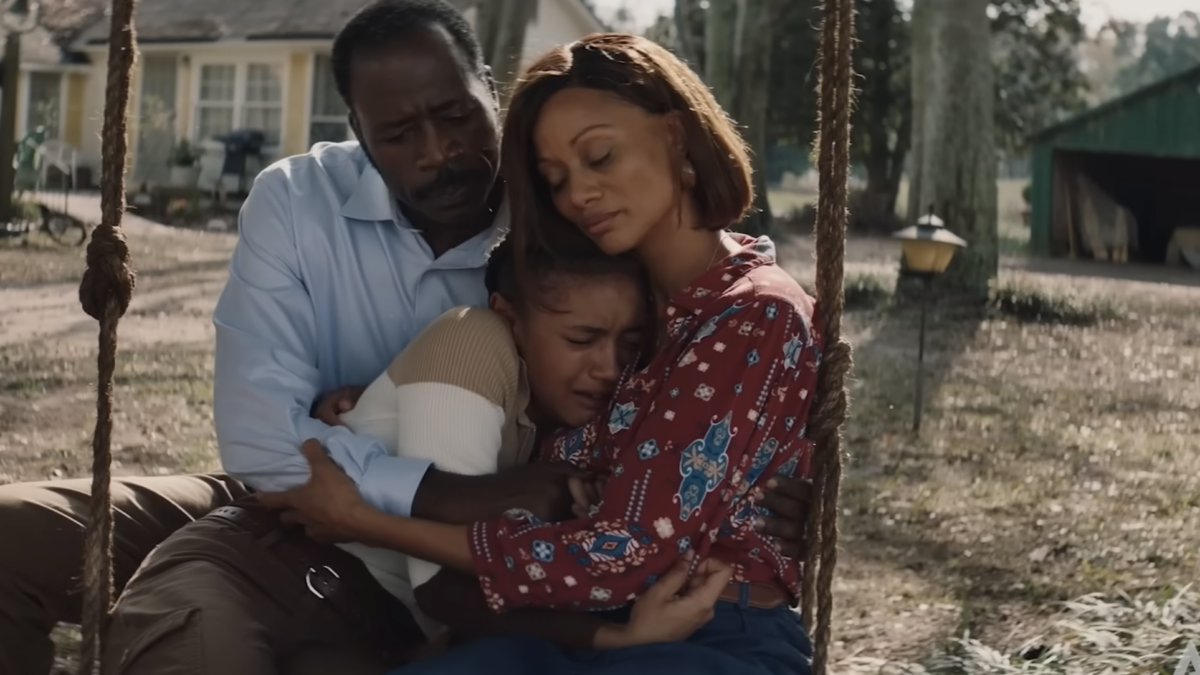
Many people have been raised to believe that board games are for kids, but the gaming industry is trying to change that with the release of incredibly risqué games.
The most well-recognized is Cards Against Humanity, which took the term “politically incorrect” and tried to bring it to a new extreme. Released in 2011, the company that created it does not even know how many copies it has sold, but they estimate that they have made more than $10 million off the game and its expansions. It became the top-selling card game on Amazon one month after it released.
Cards Against Humanity mimics the family card game Apples to Apples. The judge for the round draws a card, and on it is a sentence with words missing. Everyone at the table uses cards with nouns and phrases to fill in the holes. Then the person judging that round decides which card wins, with whatever reasoning the judge likes. It has become a dorm room staple, is adored by adults of all ages, and cannot be sold to minors (although they do probably try to take their older siblings’ copies).
‘A Party Game for Horrible People’
The top review on Amazon for Cards Against Humanity, written by Chrysswen says, “My oldest son put this game on his Christmas wish list. Knowing nothing about it I purchased it. I was overjoyed that he was asking for something that didn’t require batteries or wasn’t a video game. Now, I realize I’m going to be judged as a bad parent for purchasing this game and for not doing more research before giving it to my teenage son. I accept that. However, this game is so funny. My Husband and I have played it with our son quite a few times and it made us all sit together and just laugh so hard that we snort and end up having some very interesting conversations. Yes, the game is politically incorrect and does have some sexual context but so does everything on TV and on the internet these days. Anything that keeps my teenager talking to me and feeling comfortable speaking with us about odd or uncomfortable things is a win in my parenting handbook.”
The slogan for the game, “A party game for horrible people,” plays true in another review, by Mykie G: “This is not a review about playing Cards Against Humanity, it’s a review of the fallout endured from playing Cards Against Humanity. Take it as a warning, if you will. If you aren’t a horrible person already, you will soon be. You will play Cards Against Humanity, and as others have said, you will be shocked, appalled, and worst of all, you will learn and adapt.”
While these reviewers and anyone who has played the game can testify to its linguistic transgressiveness, they also report a certain glee at being set free to say and imply “taboo” ideas. Certainly that glee drives some of the game’s popularity, and comes from deep inside people in a culture where speech-policing can be common.
Turns Out Breaking Language Barriers Is Popular
Since 2011, many other vulgar, bawdy, or otherwise adult-only games have also hit the shelves and become quite popular. Another is Exploding Kittens: NSFW (Not Safe for Work). Illustrated by popular comedic webcomic and blogger The Oatmeal, the images in the game have their own flavor of strange. Short summary of the game: If you have a card with kitten that explodes, you lose the game, and the last man standing wins. Luckily, if you fall in love with the game, you can pick up the safe for work version to play with your family.

Joking Hazard was created based on another webcomic, Cyanide and Happiness. It currently has a 4.7 out of 5 stars on Amazon, out of more than 1,600 reviews. Cyanide and Happiness launched in 2005 and has been a pioneer of mainstream dark humor since. The comics happen in panels, like a traditional comic, and typically involve two characters, one in a green shirt, and one in a blue shirt.
These are the “main characters” in Joking Hazard, where the first panel of the comic is drawn from the deck, the judge plays the second panel from his hand, and everyone who is playing puts the final panel into a pile. Whoever finished the sequence the best, according to the judge, wins the round. This game is played to some amazing results, and has some pretty good replay value.
The ever more popular TV show “Rick and Morty” has released several high-quality games. Total Rickall is based on an episode of the show with the same name. Both feature creatures called parasites, which implant memories of themselves into your brain so they can stay in your life and control you through the bond of friendship they artificially created. In the game, there are character cards on the table, and you have to decide as a group which are parasites and which are friends, then kill the parasites. If you kill too many real people, the group loses. In the advanced version, the people you play with might secretly be parasites also.
Dozens of other popular games could make the non-PC list, like the third-party version of Cards Against Humanity called Crabs Adjust Humidity, and others including Drunk Quest, Telestrations After Dark, Drunk, Stoned or Stupid, and Bed, Wed, or Dead.
The Entertainment Value of Breaking the Rules
About 800 to 1,000 new board and card games make it to the shelves of game stores every year, and most are aimed at adults. Some are aimed at gamers, who do not mind taking two to four hours to learn a highly complex board game. However, most of these politically incorrect board games are aimed at non-gamers, and often have very simple rules and can be played quickly. The appeal is to shock, engage, and quickly turn over rounds, which is very attractive to a large group of people and may be the key to their success.
People in this harsh world also like to sit back, relax, and laugh for a little while. It’s troublesome to always be watching what we say and do lest if offend an increasingly sensitive society. Games like this set people free to laugh at ideas they might otherwise feel compelled to frown or gasp at, offering relief from our PC culture. Board games like this allow people to laugh, and give us a way to relieve ourselves from all of the politically incorrect thoughts running through our minds all day and the feelings of shame and fear that come along with them. How drastically rude or vulgar the games can be also says something about the likelihood of overreaction to social constraints too many people find too tight.
Obviously enough people enjoy the games to allow these companies to make millions of dollars producing easier, high shock-value, stress relief party games. Once people have taken the first step into playing games, they might take a dive into the less edgy but very fun realm of other adult-aimed board games. How far we all push this dynamic remains to be seen, but on the track that it is going, we might be in for a very interesting future.









